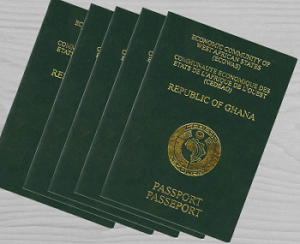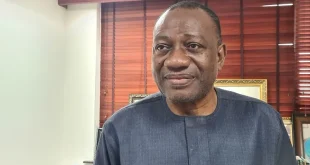
The Ministry of Foreign Affairs and Regional Integration has announced plans to roll out chip-embedded passports in Ghana by the second quarter of the upcoming year. This innovative move aims to complement the existing biometric passports initially, gradually phasing them out in due course.
During a recent media briefing in Accra, Kwaku Ampratwum-Sarpong, the Deputy Minister of Foreign Affairs and Regional Integration, emphasized the ministry’s dedication to improving service delivery by modernizing the Passport Office.
“We’re progressing step by step. Currently utilizing biometric passports, our aim is to transition smoothly to chip-embedded technology. However, this upgrade entails higher costs. Remaining at the current $8 price tag would perpetuate the challenges faced by the passport office,” Ampratwum-Sarpong highlighted, noting the directive from the international civil aviation authority for countries using biometric passports to upgrade to chip-embedded versions.
Elaborating on the security benefits, he explained, “The chip-embedded passport offers enhanced security features, posing greater challenges for fraudsters. Recognizing the gravity of passports as crucial security documents, this transition is imperative to safeguard our interests and streamline processes in our increasingly digitized world.”
Addressing resource constraints, particularly insufficient equipment hindering efficient passport processing, the Deputy Minister highlighted the need for a fee adjustment. He underscored the current situation where the Ghanaian passport, priced at $8, remains notably cheaper than its West African counterparts like Liberia, which costs $40. This significant subsidy, meant for essential equipment procurement, is instead allocated towards passport cost subsidies, fostering room for inefficiencies and malpractices.
Ampratwum-Sarpong further revealed ongoing consultations with stakeholders and proposed engagements with Parliament to revise the fee structure. “We are in talks with various stakeholders, and our next step involves engaging Parliament as an increase in passport fees requires parliamentary approval. We aim to garner support to align our fees more appropriately with the actual costs involved.”
Highlighting the collaborative efforts with the Ministry of Finance, he emphasized the eventual determination of the revised fees by the Parliament through a formal deliberation.
 GhArticles.com Every News in Detail
GhArticles.com Every News in Detail



